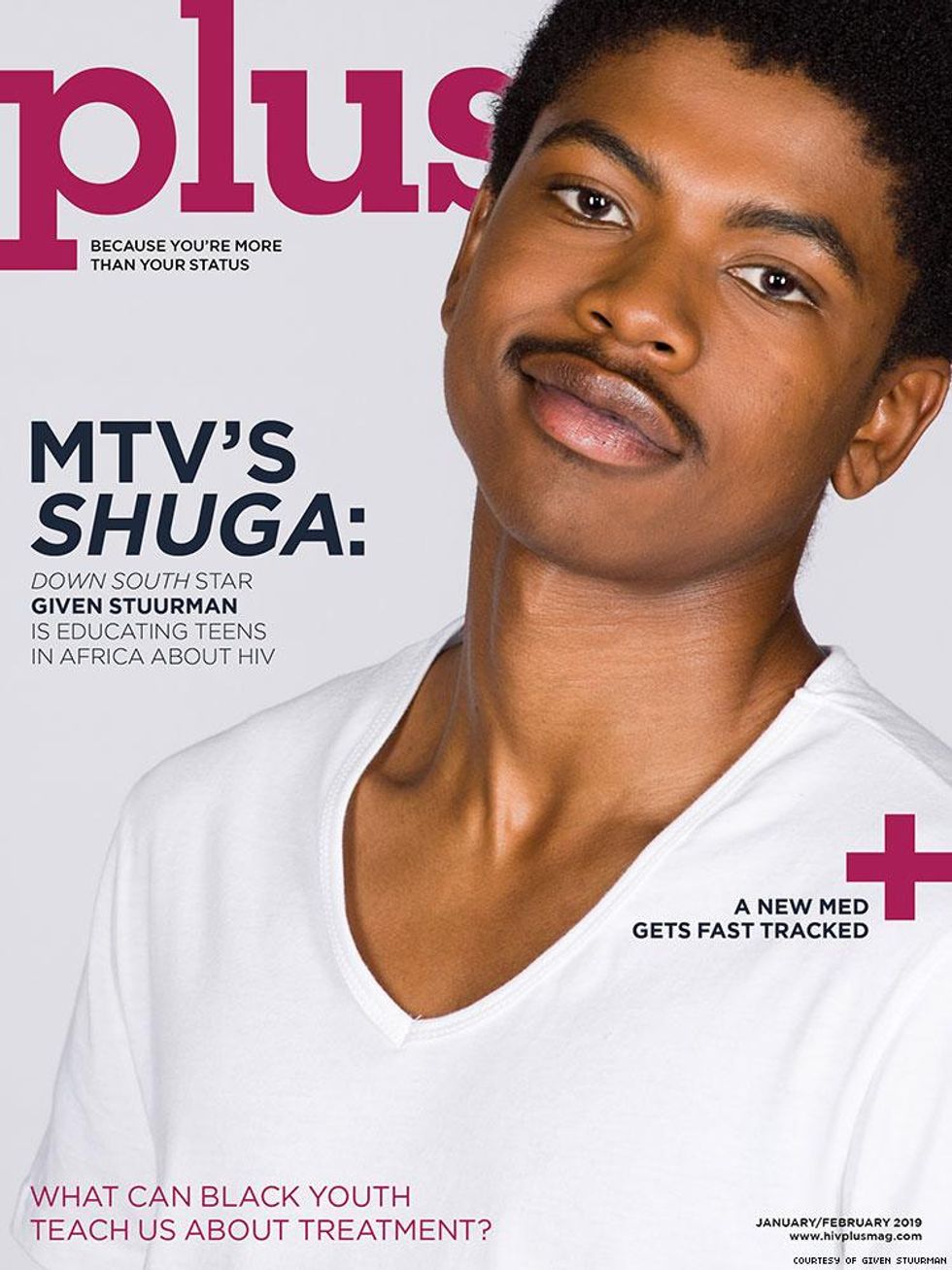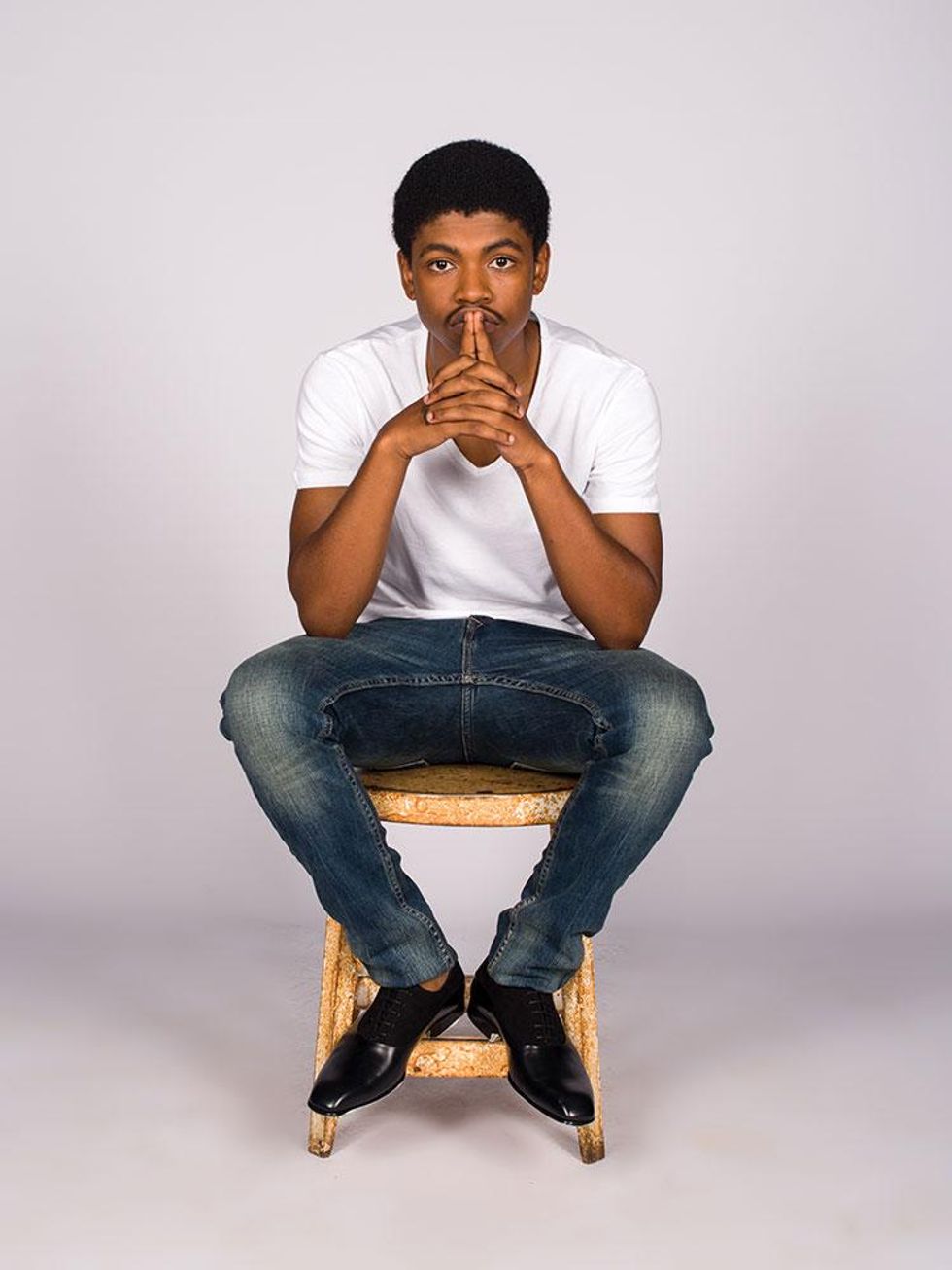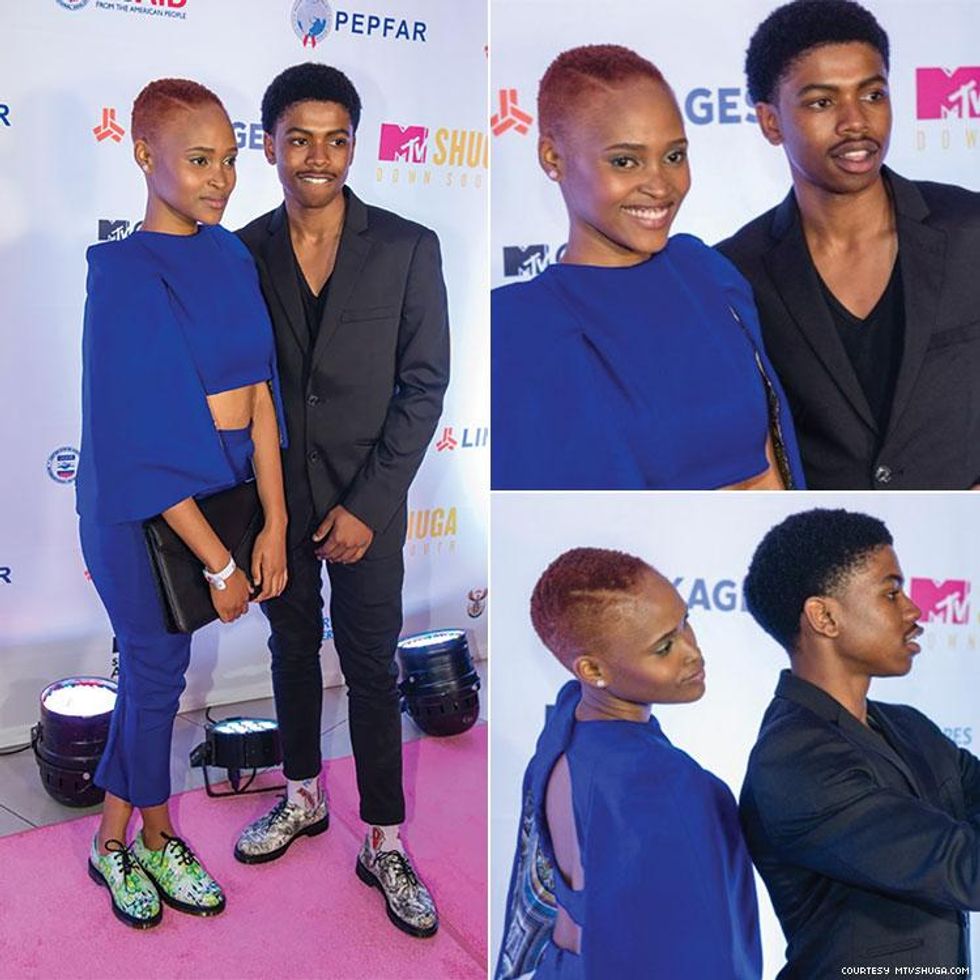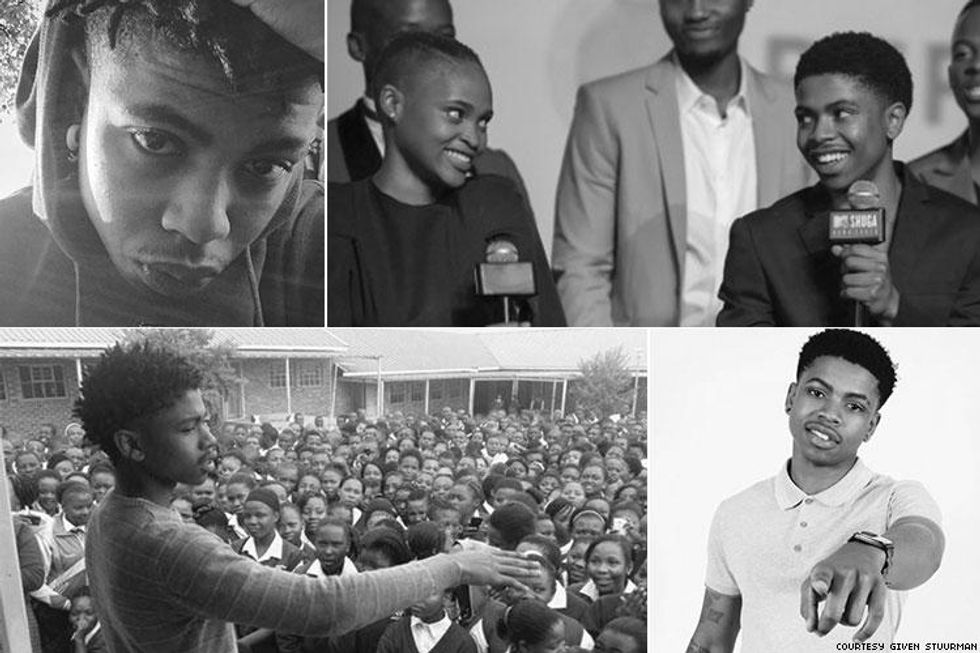Print Issue
This MTV Star Is Getting South African Youth To Talk About HIV

Given Stuurman is breaking down barriers for queer and HIV-positive representation across the African continent.
December 17 2018 2:35 PM EST
By continuing to use our site, you agree to our Privacy Policy and Terms of Use.

Given Stuurman is breaking down barriers for queer and HIV-positive representation across the African continent.
Given Stuurman is playing a gay teen for the the first time on the South African version of MTV Shuga. That depiction plays a part in the hit pan-African show, which was developed in association with MTV Staying Alive Foundation and PEPFAR (the U.S. President’s Emergency Plan for AIDS Relief, which supports HIV work in Africa).
But even as they were filming his storyline, the producers were aware that much of Stuurman’s part would end up on the cutting room floor — at least for a version distributed to many African nations — because of anti-LGBTQ sentiment on the continent.
“In most African countries it is illegal to be gay,” Stuurman explains. “To be safe, we produced two versions of Reggie’s story: one, the original story is Reggie’s story of coming out and being gay, and the second story is a pan-African version for all the other countries and has Reggie not coming out, but has a metaphorical feel to it.”
MTV Shuga, which will premiere its seventh season in early 2019, is one of the continent’s most renowned shows and is specifically shot as a “pan-African” series — meaning it’s edited to reflect individual countries’ nuances but speaks to a larger sub-Saharan identity. The 2018 season featured Stuurman playing Reggie, a popular kid who’s navigating modern teen life. That Reggie is also gay is a huge step forward in LGBTQ representation for the region (although as Stuurman suggests, the character was not out and proud in all edited versions).
Season seven returns the show to South Africa where it’s called Shuga: Down Under. The engaging teen drama feels equal parts Degrassi and after-school special — an intentional move by the show’s creators to reach young audiences with the hope of providing needed information about HIV and impacting teen choices.
Shuga is considered a highly successful “behavior-change” or “edutainment” campaign. Engaging young adult characters and stories about them confronting typical issues around love, jobs, and families are interwoven with information about sexual networks, multiple concurrent sexual partners, substance abuse, and living with HIV.
According to a 2013 report by C-Change, an USAID-funded project, a study evaluating the impact of Shuga found more than 90 percent of participants who’d watched the show said the program had an impact on their thinking around HIV testing, concurrent relationships, and stigma. More than half (52 percent) said they had talked to a close friend about the program’s characters or message.
Shuga is broadcast on over 180 channels in 70 countries and reaches 720 million households. Production began in Kenya in 2009, then expanded to Nigeria and South Africa, and it has now become one of the most-watched TV shows on the continent. This enormous audience has helped make Stuurman one of the most well-known faces in Africa, and a bit of a heartthrob.
At 23-years-old, Stuurman is already a veteran actor of 18 years. He caught the acting bug when he was only 5 as an audience member on a youth drama kids show on television in South Africa called Yo-TV.
“One day someone came up to my mother and suggested that she should get me an acting agent because I seemed to be very comfortable in front the camera,” he recalls. His mom eventually did find him an agent, and he’s been getting gigs since. He’s appeared on TV shows like Scout’s Safari and Tshisa, and movies like Straight Outta Benoni and Invictus. A bit unknown in the U.S., he’s a bonafide star in South Africa.

In sub-Saharan Africa, 2015 data from 35 countries showed that only 36 percent of young men and 30 percent of young women could identify ways of preventing the sexual transmission of HIV — or identify major misconceptions about HIV transmission. Because one million people are living with HIV in South Africa who are unaware of their status, it can be easy to assume a lack of testing is to blame: only 52 percent of young women (15-24 years old) and 38 percent of young men were tested and received results over the course of a one-year 2016 Avert study. Then again, according to a 2018 report by the Centers for Disease Control and Prevention, the percentage of American youth 15 to 24, who reported they had never been tested has risen to 63.9 percent of women and 73.7 percent of men. Since Africa has been disproportionately impacted by HIV for decades, youth there have higher risks of becoming positive than most young Americans.
While Shuga has always made HIV prevention a cornerstone of its programming, it is also breaking new ground by introducing an HIV-positive love interest for Stuurman’s Reggie. Teaming up with Unitaid (a partnership of the World Health Organization focused on combating infectious diseases) and the London School of Hygiene & Tropical Medicine (a research university focused on global health), Shuga has also unveiled storylines on HIV innovations, including at-home HIV tests, and the use of PrEP to prevent HIV transmission. The program is designed to help young viewers on the continent protect themselves from HIV.
“Millions of people in Africa watch MTV Shuga,” says Lelio Marmora, executive director of Unitaid. “Given’s popularity gives us a terrific opportunity to reach young people who don’t have reliable health information and empower them to take charge of their health — including testing themselves for HIV.”

“It’s implemented, but there’s a big gap between implementing constitutions and laws and society accepting them and following them,” Stuurman says. “Yes, it’s fine for a woman to marry another woman and a man [to marry] another man, but you still must face those social stigmas. That’s another discussion we can have on the show, because the law will not be there to protect you against discrimination in public.”
He says the environment for same-sex couples varies.
“Yes, in certain places in the country people are quite liberal and even open-minded in sub-rural and suburban areas,” Stuurman admits. “But homophobia is real and alive in many parts of Africa. This external reality reflects the internal struggles that Reggie goes through in terms of coming out.”
The show’s title, Stuurman points out, is “Nigerian slang. Someone explained that ‘shuga’ represents material things, because a lot of sexual issues revolve around material needs in Africa. For instance, we have this thing called sugar daddies in places where sugar represents sex.”
Stuurman researched the role extensively, and although much of the character had been fleshed out prior to filming, it was his job to bring Reggie to life. He says he wanted to do it in a way that didn’t disrespect or offend anyone to give “a new-found light to the community.”
Like his character in Shuga, Stuurman also grew up in Johannesburg, South Africa. However, “Reggie lives in a fictional township outside of Johannesburg. The show is shot in Johannesburg and Soweto. So we created a fictional township, so we don’t get any backlash troubles about why we created this character in Soweto.”
The show has other concerns American TV shows don’t.
“One of the other issues we have had with gay characters in South African media is that they are often represented stereotypically,” Stuurman observes. “They tend to paint the community, especially men, with just one brush. For a man in the LGBTQ community, you must be flamboyant.”

Since the storylines are heavily censored in some countries, the producers decided to also post Reggie’s coming out on YouTube, to ensure that those who needed to see this story were still able to.
“Funny enough, most of the positive responses are from the countries where being gay is illegal,” Stuurman says. “I would go on my Instagram and get DMs from people in Nigeria and Jamaica and they would say, ‘Thank you so much for telling Reggie’s story!’ And they are very appreciative. In South Africa, it’s twice as much. The communities love it there and are thankful.”
In 2018, South Africa celebrated what would have been the late Nelson Mandela’s 100th birthday. Mandela was the country’s first black president, and Stuurman explains that his generation of South Africans are known as Born Free. He describes “Born Frees” as the post-apartheid and post-Nelson Mandela generation. “[I] was born free in 1994,” Stuurman says. “Our parents literally had two options when it came to freedom: social freedom and political freedom.” Now, young people are demanding more, protesting over lingering economic disparities and racial injustices.
“We, the Born Frees, only grew up knowing this democracy. We are able to be in social environments that our parents have never been in. We have been exposed to economic things our parents have never seen. For us, we understand the importance of Mandela — he gave us our democracy. But as we look more deeply, systemically, economically, and socially — nothing has really changed for us.”
What does it really mean? Stuurman asks rhetorically. “Mostly, that politicians are propagating my phone with all these messages about this and that, but there is nothing that they are really doing in my life directly.”
Stuurman explains the youth in his country are discouraged by the slow pace of change, and the continued economic and social disparities facing black people.
“They know of Mandela but… they don’t know what he is doing for us now,” he says. Although they are aware Mandela is dead, they are essentially asking, “What has he done for us lately?”
“When it comes down to it,” Stuurman concludes, “most of the unrest among youth in the country is the realization that when you’re broke and hungry, what does that mean? You can’t eat democracy.”